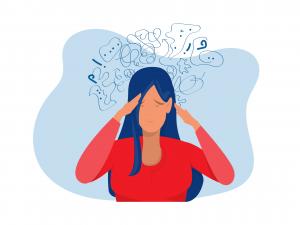ADD and Anxiety: Understanding the Overlap and Clinical Connection
At ADD Clinics in Gulfport, Mississippi, Dr. Stanford Owen has focused extensively on the co-occurrence of ADD and anxiety in adult and adolescent populations. Both conditions are prevalent in clinical practice, and their combined presentation often complicates the treatment pathway. In many cases, patients presenting with restlessness, difficulty concentrating, or chronic worry may be exhibiting signs of both disorders simultaneously.
“ADD and anxiety disorders frequently reinforce each other in clinical presentation,” said Dr. Stanford Owen, founder of ADD Clinics. “ADD increases the likelihood of experiencing anxiety, and unresolved anxiety can make ADD symptoms more disruptive. Proper identification of both is essential for effective intervention.”
Clinically, ADD is characterized by symptoms such as inattention, distractibility, forgetfulness, and impulsivity. Anxiety, on the other hand, is marked by excessive worry, tension, nervousness, and physical manifestations such as increased heart rate or difficulty sleeping. However, many of these symptoms—especially difficulty focusing, restlessness, and sleep disruption—are shared, making differential diagnosis more complex.
The neurobiology of both disorders points to dysfunction in similar areas of the brain. The prefrontal cortex, which regulates attention and executive function, plays a key role in both conditions. Imbalances in neurotransmitters such as dopamine and norepinephrine contribute to the hallmark traits of ADD, while disruptions in serotonin and GABA pathways are more associated with anxiety responses. When both conditions are present, these neurochemical imbalances can interact in ways that exacerbate symptoms and increase the overall burden on the individual.
Patients with undiagnosed ADD may experience anxiety as a response to the consequences of their inattention—missed deadlines, poor performance, interpersonal difficulties, and chronic disorganization can trigger ongoing worry and self-doubt. Conversely, chronic anxiety can impair concentration and executive functioning, which mimics and sometimes amplifies ADD symptomology. This feedback loop can lead to underperformance, stress, and emotional exhaustion if not appropriately addressed.
From a diagnostic standpoint, the presence of both ADD and anxiety requires a comprehensive evaluation. Standardized screening tools, detailed patient histories, and targeted clinical interviews are typically used to differentiate symptoms and understand their origin. Treating one condition without addressing the other can result in limited improvement or, in some cases, a worsening of symptoms.
For example, stimulant medications are commonly used to treat ADD, but in individuals with untreated anxiety, these medications may intensify nervousness or irritability. On the other hand, certain anti-anxiety medications may cause sedation or cognitive dulling, which can worsen ADD-related inattention. Effective treatment requires balancing these approaches—often involving a combination of medication, behavioral therapy, and lifestyle strategies.
Research supports the use of cognitive-behavioral therapy (CBT) in managing both conditions, particularly when combined with medication. CBT helps patients develop coping mechanisms, restructure thought patterns, and manage daily routines. In cases of co-occurring ADD and anxiety, therapy may focus on time management, mindfulness, and emotional regulation.
In Gulfport and the surrounding region, ADD Clinics continues to work with individuals navigating the challenges of dual-diagnosis conditions. Treatment plans are individualized, with emphasis on accurate assessment, patient education, and collaborative care. A clear understanding of how ADD and anxiety intersect can significantly improve clinical outcomes and long-term functioning.
The connection between ADD and anxiety is not simply a coincidence of symptoms—it is a dynamic clinical relationship that requires careful evaluation and integrated management. Recognizing the overlap and understanding the interplay between neurological and psychological factors provides a foundation for effective care.
As awareness of mental health continues to grow, more individuals are seeking answers to lifelong struggles with focus, worry, and emotional regulation. For many, the answer lies in understanding not just one condition, but the complex relationship between two. ADD and anxiety are common, treatable, and—when properly addressed—manageable within daily life.
Morgan Thomas
Rhino Digital, LLC
+1 504-875-5036
email us here
Visit us on social media:
Facebook
Legal Disclaimer:
EIN Presswire provides this news content "as is" without warranty of any kind. We do not accept any responsibility or liability for the accuracy, content, images, videos, licenses, completeness, legality, or reliability of the information contained in this article. If you have any complaints or copyright issues related to this article, kindly contact the author above.
Construction Mats Market: Growth, Trends, Opportunities & Forecast, 2021 - 2031
'Retired But Ready' Debuts as the Go-To Digital Space for Retirees Seeking Purpose, Connection, and Growth
Vienna Palaces to Coastal Tables: Chef Martin Hoellrigl Redefines Fine Dining
Kalendarium
Więcej ważnych informacji
 Jedynka Newserii
Jedynka Newserii

 Jedynka Newserii
Jedynka Newserii

Prawo

KE proponuje nowy Fundusz Konkurencyjności. Ma pobudzić inwestycje w strategiczne dla Europy technologie
W środę 16 lipca Komisja Europejska przedstawiła projekt budżetu na lata 2028–2034. Jedna z propozycji zakłada utworzenie Europejskiego Funduszu Konkurencyjności o wartości ponad 400 mld euro, który ma pobudzić inwestycje w technologie strategiczne dla jednolitego rynku. Wśród wspieranych obszarów znalazła się obronność i przestrzeń kosmiczna. Na ten cel ma trafić ponad 130 mld euro, pięciokrotnie więcej niż do tej pory.
Firma
Były prezes PGE: OZE potrzebuje wsparcia magazynów energii. To temat traktowany po macoszemu

Choć udział odnawialnych źródeł energii w miksie energetycznym Polski jest stosunkowo wysoki i rośnie, to ten przyrost jest chaotyczny i nierównomiernie rozłożony miedzy technologiami – wskazuje Forum Energii. Dodatkowo OZE potrzebują wsparcia magazynów energii, a zdaniem Wojciecha Dąbrowskiego, prezesa Fundacji SET, ten temat jest traktowany po macoszemu. Brak magazynów powoduje, że produkcja energii z OZE jest tymczasowo wyłączana, co oznacza marnowanie potencjału tych źródeł.
Infrastruktura
Wzrost wynagrodzeń ekip budowlanych najmocniej wpływa na koszty budowy domu. Zainteresowanie inwestorów mimo to nieznacznie wzrasta

Budowa metra kwadratowego domu w Polsce kosztuje od 5,55 do 6 tys. zł w zależności od województwa – wynika z najnowszych analiz firmy Sekocenbud. Najdrożej jest w Warszawie, gdzie cena za metr kwadratowy domu przekroczyła już 6,2 tys. zł. Na przyrosty kosztów budowy domu wpływają zarówno drożejące materiały budowlane, jak i wyższe wynagrodzenia pracowników. Inwestorzy nie rezygnują jednak z budowy domów jednorodzinnych, co ma związek m.in. z wciąż wysokimi cenami mieszkań czy też obniżką stóp procentowych.
Partner serwisu
Szkolenia

Akademia Newserii
Akademia Newserii to projekt, w ramach którego najlepsi polscy dziennikarze biznesowi, giełdowi oraz lifestylowi, a także szkoleniowcy z wieloletnim doświadczeniem dzielą się swoją wiedzą nt. pracy z mediami.










.gif)

 |
| |
| |
|